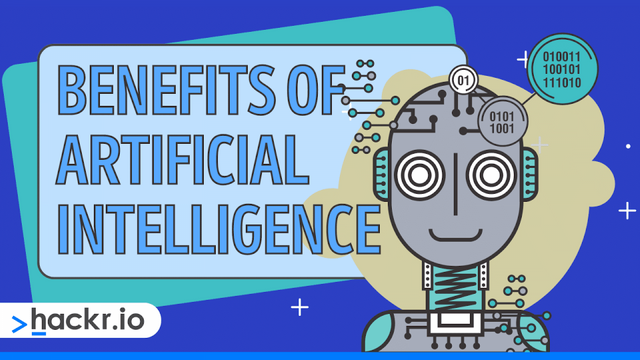
What is the importance of artificial intelligence in the business world?
Artificial intelligence helps to analyze human behavior by identifying behavioral patterns and simulating them. Over time, it can identify needs and make rational decisions based on its accumulated observations. Here are some points to recognize the importance of artificial intelligence in the business world:
Increasing efficiency and productivity.
Increasing efficiency and productivity are considered among the most important benefits of implementing artificial intelligence within a company. Technology has made life easier in dealing with tasks on a scale that humans cannot handle. Removing such tasks from the responsibilities of human workers enables them to move to other tasks that technology cannot perform due to the speed of completion. This allows companies to reduce the costs of routine tasks that are repeated and that technology can perform, while maximizing the talents of their human capital.
Improving work speed.
Karen Banita asserts that in this digital age, artificial intelligence will help her move quickly in business. It also saves time when transitioning from design to marketing and provides diverse and rapid skill development courses, which in turn, enables better and more advanced investment.
Ease of work development and improving management efficiency.
Chris Brahmer confirms that executives can use artificial intelligence to expand the business model and policies that the company follows to improve its performance.
Improving customer service.
In order to provide quick and easy customer service anytime and anywhere without the need to wait for a service representative for a long time, this process is done using a chatbot, which is a program that mimics human conversation or chat with customers through websites, mobile applications, and so on. It is a digital marketing that works with artificial intelligence and communicates with individuals.
Improving business monitoring to prevent breakdowns and issues.
Artificial intelligence is capable of handling large amounts of data, for example, AI can take the information collected by devices on factory equipment to identify problems with those machines and predict the maintenance that will be required and its timing, thus preventing costly breakdowns. The monitoring capabilities of AI can be equally effective in other areas, such as cybersecurity operations for institutions where large amounts of data need to be analyzed and understood.
Managing talent better in the workplace.
Companies use artificial intelligence to improve various aspects of talent management, from simplifying the recruitment process to eliminating bias in company communications. According to independent consultant Catherine Jones, who wrote about the increasing use of AI in recruitment, AI-supported processes affect the productivity of human hands in screening candidates accurately. Companies also use chatbots to guide candidates to suitable positions and help employees select the best candidates based on specific criteria. AI also contributes to measuring employees' abilities, identifying high performers, retaining them, and giving them fair compensation and rewards.
Saving money and providing more opportunities.
Artificial intelligence techniques can work 24/7 without feeling tired or needing rest like humans, which is evidence of their reliability to work at any time. They can also analyze huge amounts of data within seconds and take less time to make decisions when relevant information is available, which increases the chances of companies working more efficiently and saving money.